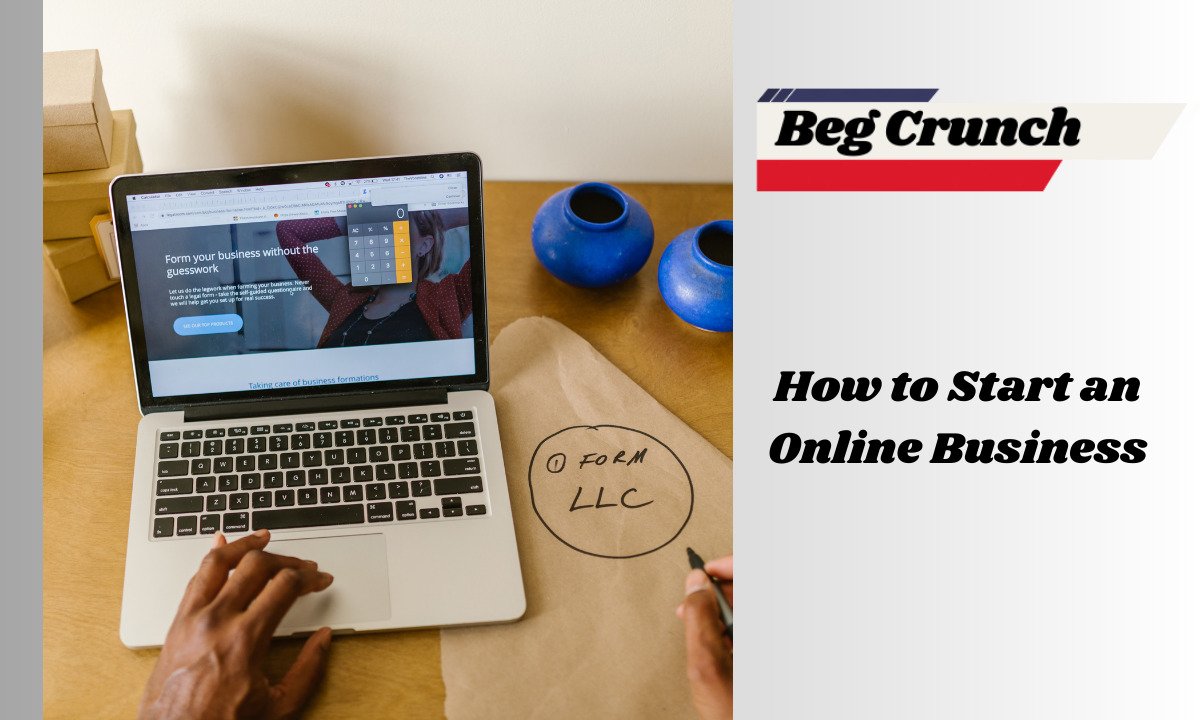How to Start an Online Business
Starting an online business can be a rewarding and flexible way to pursue your entrepreneurial ambitions. With the increasing popularity of e-commerce and digital technologies, the opportunities for online businesses are vast. Whether you plan to sell products, offer services, or create digital content, launching an online business requires careful planning, a solid strategy, and a customer-focused approach. In this comprehensive guide, we will walk you through the essential steps to start your own online business. From choosing the right business model to marketing your brand, we’ve got you covered.
1. Choose the Right Online Business Model
The first step in starting an online business is deciding on the right business model that aligns with your skills, interests, and target market. Here are some popular online business models:
E-commerce Store: Sell physical products through your online store. Think about dropshipping, where you collaborate with vendors that manage inventory and delivery.
Digital Products: Create and sell digital products such as ebooks, online courses, software, or digital art.
Service-Based Business: Offer your skills and expertise as services, such as freelance writing, graphic design, web development, or consulting.
Subscription Model: Provide exclusive content or services through a subscription-based membership.
2. Conduct Market Research
Thorough market research is essential to understand your target audience, competitors, and market trends. Consider these steps:
Identify Your Target Audience: Define your ideal customers and understand their needs and preferences.
Analysing your rivals will help you discover their advantages and disadvantages. Look for methods to set your company apart and provide special value.
Market Trends: Stay updated on industry trends and changes in consumer behavior to adapt your business strategies accordingly.
3. Build Your Online Presence
For recruiting clients and establishing reputation, a good internet presence is essential. Here’s how to do it:
Website: Create a professional and user-friendly website that showcases your products, services, or content.
Branding: Develop a unique brand identity, including a logo, color scheme, and brand messaging.
SEO Optimisation: To increase your website’s visibility in search results, optimise it for search engines.
Social Media: Utilize social media platforms to engage with your audience and promote your business.
4. Set Up Your Online Store or Platform
If you are running an e-commerce business or selling digital products, you’ll need to set up your online store or platform. Consider these steps:
Choose an E-commerce Platform: Select a reliable e-commerce platform that suits your needs, such as Shopify, WooCommerce, or BigCommerce.
Product Listings: Create compelling product listings with detailed descriptions, high-quality images, and clear pricing information.
Payment Gateways: Set up secure payment gateways to process customer transactions.
Shipping and Fulfillment: Decide on shipping options and partner with reliable shipping companies to deliver products to customers.
5. Develop a Marketing Strategy
A well-defined marketing strategy is essential for attracting customers and driving sales. Consider the following marketing tactics:
Create useful and educational information, such as blog posts, videos, or infographics, to draw in and keep the attention of your target audience with content marketing.
Email Marketing: Build an email list and send regular newsletters or promotions to keep customers informed and interested.
Social Media Marketing: Use social media platforms to interact with your audience, share updates, and run targeted ad campaigns.
Influencer Marketing: Collaborate with influencers or industry leaders to promote your products or services to a wider audience.
6. Ensure Legal and Financial Compliance
Complying with legal and financial requirements is crucial for the long-term success of your online business. Consider these aspects:
Business Registration: Register your online business and obtain any necessary licenses or permits.
Terms of Service and Privacy Policy: Create clear and transparent terms of service and a privacy policy for your website.
Payment Security: Implement secure payment gateways and data encryption to protect customer information.
Taxation and Accounting: Understand your tax obligations and maintain accurate financial records.
7. Provide Excellent Customer Support
Customer happiness is extremely important in the realm of internet commerce. To foster loyalty and trust, offer first-rate customer service. Consider these tips:
Quick Responses: Provide timely, courteous responses to consumer questions and concerns.
Clear Communication: Ensure that customers have clear information about your products, services, and policies.
Feedback and Reviews: Encourage customers to leave reviews and feedback to improve your offerings.
FAQs
Do I need technical expertise to start an online business?
While technical expertise can be helpful, many online business platforms are user-friendly and require no coding skills. You can also hire professionals to handle technical aspects if needed.
How much money will I need to start a business online?
The capital required to start an online business can vary significantly based on the business model and scale. Some online businesses can be started with a minimal budget, while others may require more substantial investment for inventory or technology.
What are some efficient strategies for promoting my internet store?
Utilize content marketing, social media marketing, SEO optimization, and paid advertising to drive traffic to your online store.
Is it necessary to have a physical office for an online business?
Having a physical office is not a requirement for an online business. You can run an online business from anywhere with an internet connection.
Conclusion
Starting an online business offers immense opportunities for growth and success in the digital age. By following the steps outlined in this guide, you can lay a strong foundation for your online business and increase your chances of building a thriving venture.
Stay focused on your target audience, continually improve your offerings, and be adaptable to changes in the online market. Building an online business requires dedication, perseverance, and a commitment to providing value to your customers.
Now that you have the knowledge and strategies to start your own online business, take the leap and embark on this exciting journey. With creativity, innovation, and a customer-centric approach, your online business has the potential to achieve remarkable heights of success. Good luck!







